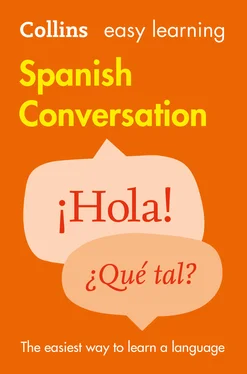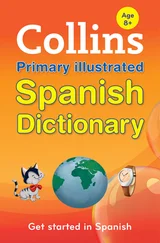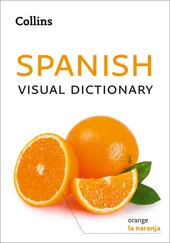1 ...7 8 9 11 12 13 ...18
| ¿ Cuánto cuestaun billete a Madrid? |
How much isa ticket to Madrid? |
| ¿ Cuánto cuestadejar una maleta en consigna? |
How much does it costto leave a case in left luggage? |
| ¿ Cuánto valeel vuelo? |
How much isthe flight? |
| ¿ Cuánto cuestanlas tarjetas de diez viajes? |
How much arecards that are valid for ten journeys? |
| ¿ Cuánto costaríaalquilar un coche dos días? |
How much would it costto hire a car for two days? |
| ¿ Cuánto me cobraría porllevarme a Tarragona? |
How much would you charge totake me to Tarragona? |
| ¿ Cuánto se tardaen llegar a Figueres? |
How long does it taketo get to Figueres? |
| ¿Sabe cuánto se tardade León a Madrid? |
Do you know how long it takesfrom León to Madrid? |
| ¿ Cuánto tardaremosen llegar allí? |
How long will it take usto get there? |
| ¿ Cuánto durael viaje? |
How long isthe journey? |
When travelling, you’re very likely to want to ask about how often buses, trains and so on run. To do this you can use ¿Cada cuánto tiempo…?( How often…? ) with a verb in the present tense.
| ¿ Cada cuánto tiempopasa el autobús a Sitges? |
How oftendoes the bus to Sitges run? |
| ¿ Cada cuánto tiempohay vuelos a Londres? |
How oftenis there a flight to London? |
| ¿ Cada cuánto tiemposale un tren para Vilafranca? |
How oftenis there a train to Vilafranca? |
To find out if something’s available, whether you’re asking an assistant about car hire, timetables, or seating, you’ll need to use the question ¿Tienen…?( Do you have…? ). It’s from the verb tener. For more information on tener, see here.
| ¿ Tienenmonovolúmenes de alquiler? |
Do you havepeople carriers for hire? |
| ¿ Tienencoches más pequeños? |
Do you haveany smaller cars? |
| ¿ Tienenhorarios de trenes? |
Do you havetrain timetables? |
| ¿ Le quedanasientos de pasillo? |
Have you got anyaisle seats left? |
Just as in English we can ask for something by saying a…, please , in Spanish you can say un…, por favoror una…, por favor, depending whether the thing you’re asking for is masculine or feminine. Alternatively, another very natural way to ask for things is using ¿Me da…?( Can I have …?).
| Un billete sencillo, por favor. |
A single, please. |
| Tres billetes de ida y vuelta a Cáceres, por favor. |
Three returns to Cáceres, please. |
| ¿ Me daun mapa del metro? |
Can I havea map of the underground, please? |
| ¿ Me daun horario de trenes? |
Can I havea train timetable, please? |
| ¿ Me daun billete de ida y vuelta a Madrid? |
Can I havea return to Madrid? |
To say what you’d like or what you want, you can use either quieroor quisiera( I’d like ). They come from the verb querer. For more information on querer, see here.
| Quieroalquilar una bicicleta. |
I’d liketo hire a bike. |
| Quierodenunciar la pérdida de mis maletas. |
I’d liketo report my luggage missing. |
| Quisieraun billete de ida a Alicante. |
I’d likea single to Alicante. |
| Quisierabilletes de ida y vuelta a Zaragoza para dos adultos. |
I’d liketwo adult returns to Zaragoza. |
You can also use ¿Puede…?and ¿Podría…?( Can you …? and Could you …?) when asking whether someone can do something for you. They are both from the verb poder. For more information on poder, see here.
| ¿ Puedeavisarme cuando estemos cerca del museo? |
Can youtell me when we’re near the museum? |
| ¿ Puededejarme aquí? |
Can youdrop me here? |
| ¿ Puededecirme cómo se llega a la cathedral? |
Can youtell me how to get to the catedral? |
| ¿ Podríacomprobar la presión de los neumáticos? |
Could youcheck the tyre pressure? |
| ¿ Podríacomprobar el nivel de aceite? |
Could youcheck the oil? |
| ¿ Me llevaal Barrio Gótico, por favor? |
Can you take meto the Barrio Gótico, please? |
| ¿ Me llevaal Hostal Principal en la avenida de Vilanova, por favor? |
Can you take meto the Hostal Principal in avenida de Vilanova, please? |
| AlHotel Don Sancho, por favor. |
To theHotel Don Sancho, please. |
Use ¿Puedo…?or ¿Se puede…?( Can I…? ) to ask whether you can do something. These come from the verb poder( to be able ). For more information on poder, see here.
| ¿ Puedopagar con visa? |
Can Ipay by visa? |
| ¿ Puedopagar con tarjeta? |
Can Ipay by card? |
| ¿ Se puedeabrir la ventanilla? |
May Iopen the window? |
| ¿ Se puedefumar en el tren? |
Issmoking allowedon the train? |
To ask someone if they mind if you do something, you can use ¿Le importa que…?( Do you mind if…? ) followed by a verb in the present subjunctive. For more information on the subjunctive, see here.
| ¿ Le importa queponga mi maleta en el portaequipajes? |
Do you mind ifI put my suitcase on the rack? |
| ¿ Le importa queme siente aquí? |
Do you mind ifI sit here? |
SAYING WHAT YOU HAVE TO DO
Читать дальше












